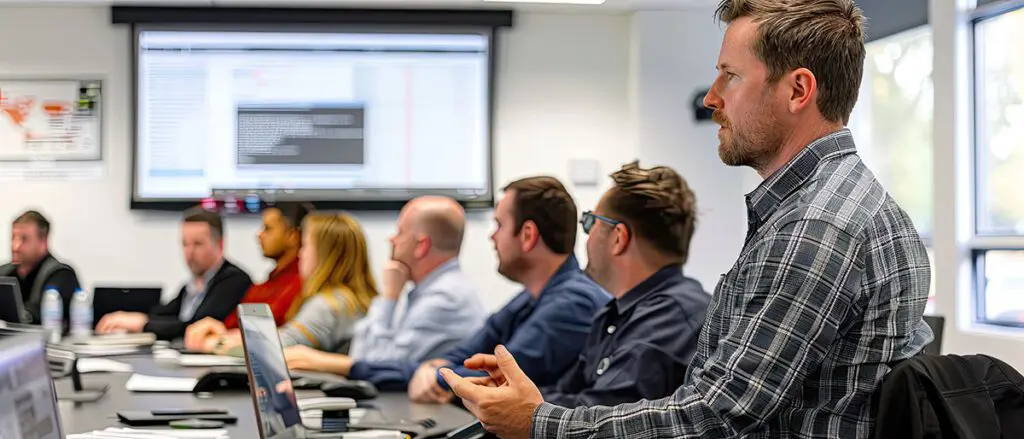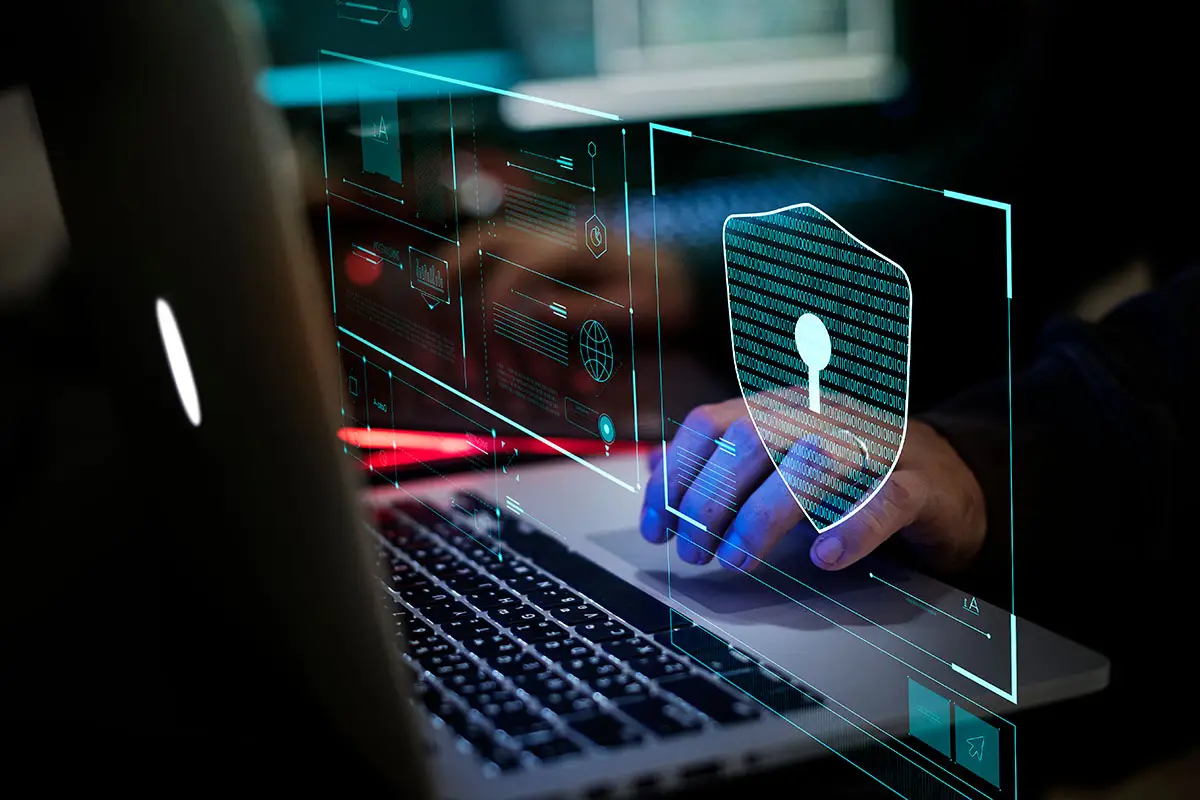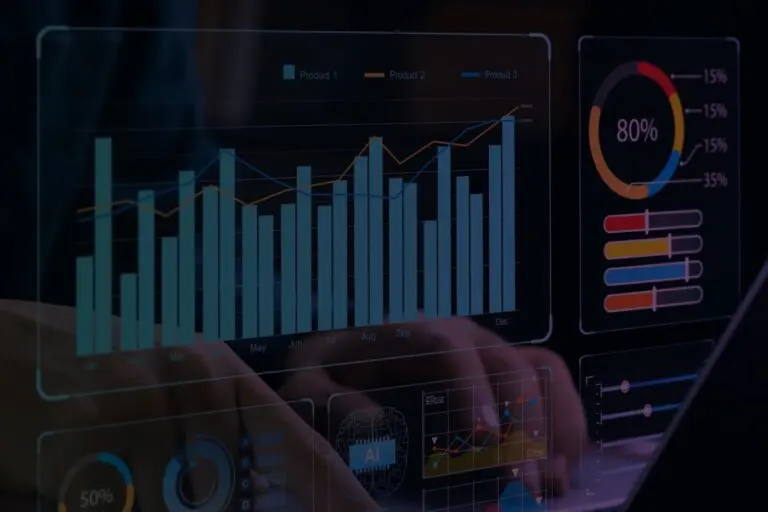In today’s digital age, the importance of IT security cannot be overstated. As businesses increasingly rely on technology, the risk of cyber-attacks and data breaches has become a significant concern. Let’s explore the critical role of IT security, Cyber Essentials Certified and Cyber Essentials Plus in modern business, the growing threat landscape, and the importance of a certification in maintaining a secure and compliant environment.
The Critical Role of IT Security in Modern Business
In today’s business world, IT security is not just an optional consideration but a necessary component of any effective business strategy. As more people work remotely, use cloud services, and connect Internet of Things or IoT devices, businesses must focus on IT security. It helps protect against cyber threats, keeps operations smooth, and maintains customer trust.
The Growing Threat Landscape
The threat landscape constantly evolves, with new and sophisticated attacks emerging regularly. Some common types of cyber threats include:
Phishing Attacks
Malicious emails or messages are crafted to deceive users into disclosing sensitive information.
Ransomware
Malicious emails or messages are crafted to deceive users into disclosing sensitive information.
Malware and Viruses
Malicious software designed to harm or exploit a system.
Insider Threats
Unauthorised access or misuse of sensitive information by an employee or contractor.
The Basics of IT Security
It’s a multifaceted discipline that encompasses several key components:
- Network Security: Protecting the network from unauthorised access and malicious activity.
- Application Security: Ensuring applications are secure and free from vulnerabilities.
- Information Security: Protecting sensitive data from unauthorised access, use, or disclosure.
- Operational Security: Ensuring the secure operation of systems and processes.
The Government’s National Cyber Security Centre provides lots of advice on what to consider when it comes to IT security, and IT Support organisations like iTEK are a valuable source of advice too.
Introduction to Cyber Essentials
Cyber Essentials is a widely recognized certification showcasing businesses’ IT security dedication. The certification process includes completing a self-assessment questionnaire and an on-site assessment for Cyber Essentials Plus. Benefits of accreditation include:
- Enhanced Security Posture
- Building Customer Trust
- Compliance and Regulatory Benefits
- Competitive Advantage
The Cyber Essentials Plus Certification Process
For certification, organisations must:
- Prepare for Certification
- Complete the Self-Assessment Questionnaire
- On-site Assessment for Cyber Essentials Plus
- Post-Certification Steps and Maintaining Compliance
Core Principles of Cyber Essentials
Here are five core principles to take note:
- Secure Configuration: Ensuring systems and applications are configured securely.
- Boundary Firewalls and Internet Gateways: Protecting the network perimeter from unauthorised access.
- Access Control: Ensuring access to systems and data is restricted to authorised personnel.
- Malware Protection: Protecting against malware and other types of malicious software.
- Patch Management: Regularly updating systems and applications to prevent vulnerabilities.
Implementing Robust IT Security Measures
Maintaining a secure IT environment is crucial for any organisation. Here’s a breakdown of critical measures to achieve this:
Develop a Comprehensive IT Security Policy:
- Acceptable Use Policy: Defines appropriate employee IT resource behaviour, covering email, internet usage, and data handling.
- Password Management Guidelines: Establishes strong password creation, storage, and rotation standards.
- Access Control Procedures: Defines data and system access based on least privilege.
- Incident Reporting Procedures: Provides clear steps for reporting suspicious activity or security breaches.
- Data Backup and Recovery Strategies: Outlines procedures for backing up and recovering critical data.
Employee Training and Awareness Programs:
Regular training prepares employees to identify and avoid cyber threats, covering phishing scams, social engineering tactics, and secure password practices. Encourage a security culture by promoting reporting of suspicious activity and questions.

Regular Security Audits:
Proactive security assessments find vulnerabilities in your IT infrastructure and security posture. Penetration testing simulates cyberattacks to identify weaknesses in network defences. Vulnerability scanning tools detect known security flaws in software and systems. Regular audits ensure defences are effective against evolving threats.
Incident Response Planning:
An effective incident response plan reduces damage and downtime during a cyberattack. It should define roles for incident detection, containment, eradication, and recovery and be regularly tested and updated for an efficient response.
Advanced IT Security Practices
To stay ahead of emerging threats, organisations should consider:
- Encryption and Data Protection: Protecting sensitive data with encryption.
- Multi-Factor Authentication: Adding a layer of security to user authentication.
- Intrusion Detection Systems: Monitoring network traffic for suspicious activity.
- Regular Software Updates and Patching: Regularly update systems and applications to prevent vulnerabilities.
Future Trends in IT Security
The landscape of IT security is rapidly evolving, with artificial intelligence (AI) playing a pivotal role in shaping its future. AI tools are not just beneficial but essential for the detection and response to cyber threats, offering unparalleled speed and efficiency in identifying potential risks.
As cybercriminals become more sophisticated, organizations must remain vigilant and proactive, constantly adapting to new threats. This requires a dynamic approach to security, one that incorporates continuous improvement through regular reviews and updates. Such diligence ensures that security measures remain effective against an ever-changing backdrop of vulnerabilities and attack vectors. The integration of AI in cybersecurity, the anticipation of new threats, and the commitment to continuous improvement are the hallmarks of a robust IT security strategy for the future.
Securing Your Business: A Strategic Journey
The digital landscape presents ongoing security challenges for businesses. Cyber Essentials certification demonstrates a commitment to robust IT security, a critical foundation for a secure and compliant environment.
At iTEK Computer Solutions, we understand IT Security & Cyber Essentials, core security principles, implementing solid measures, and staying ahead of evolving threats are essential to protecting your organisation from cyberattacks and maintaining customer trust. Our proactive engineers ensure seamless operations and a secure future for your business. Partner with iTEK, we offer tailored managed IT, technology, and telephony support, addressing your specific requirements. Let our capable hands manage your IT, freeing you to focus on core business activities. Contact us today to unlock a more efficient and secure digital future.






